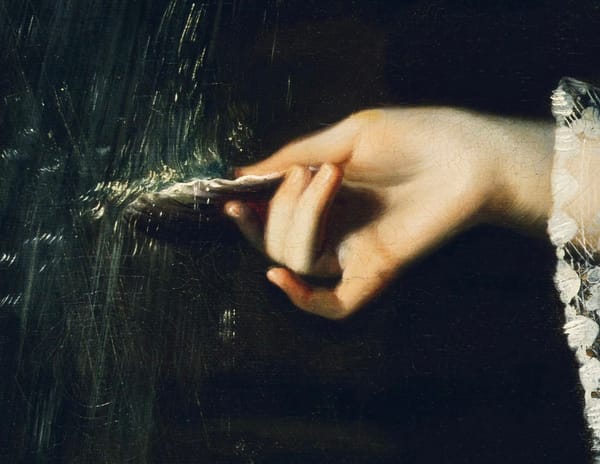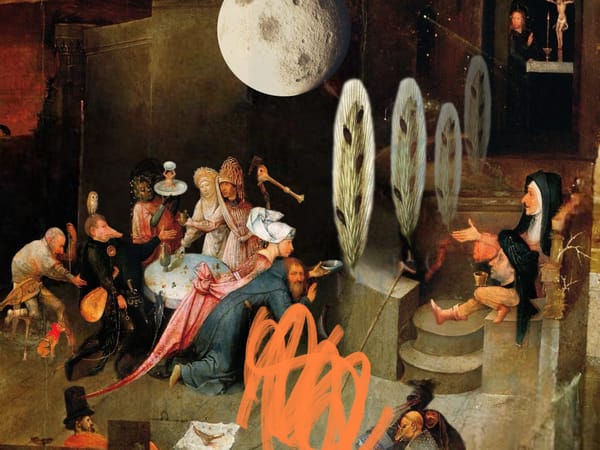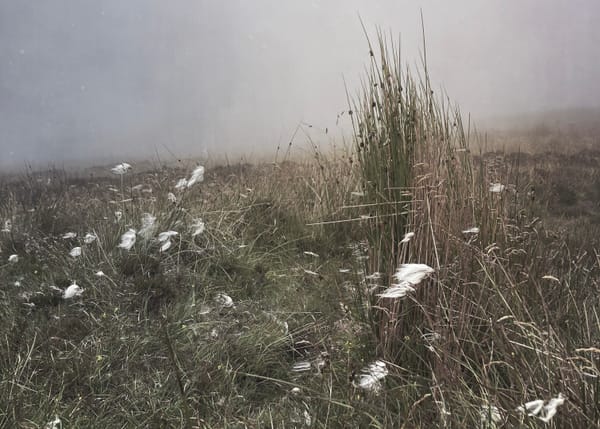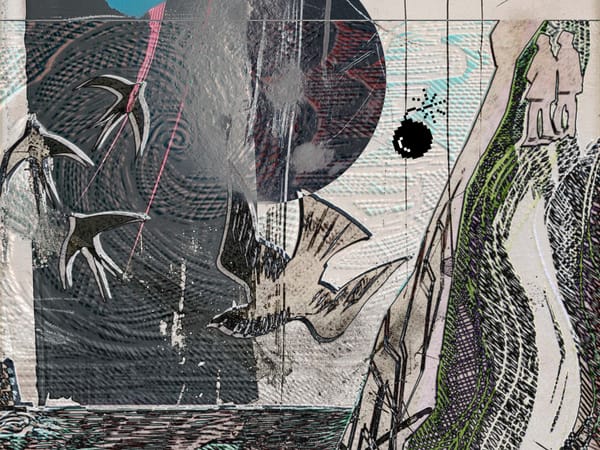Writing the Dead
thoughts on atrocity in fiction
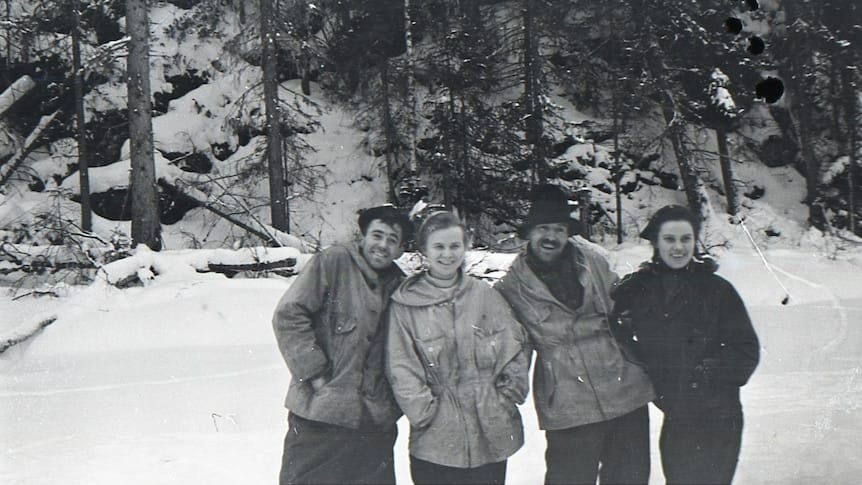
Tell all the truth but tell it slant —
Success in Circuit lies
—Emily Dickinson, 1263
It’s the Full Hallows Moon and I’m thinking of a story I wrote 14 years ago. I cringe when I revisit work I’ve relinquished to the world. Paul Valery famously said a poem is never finished but abandoned, and this is the same for a book or a story. I abandoned a story I wrote in 2009 called The Wintering Party about the Dyatlov Pass Incident—the unexplained deaths of nine hikers in the Ural mountains in 1959. Their tent was found collapsed, covered in snow and cut open from the inside. It still contained their belongings, including their shoes. Witnesses in the area claimed to have seen orange spheres in the sky, and the official files, secreted for decades, only recently came to light. It was essentially an X file.
Researching and writing this story was a bit like my more recent obsessive dive into the world of the Scottish witch hunts—the secret records, the mood of terror, the circling myths—but at the time I believed fiction was a better vehicle for arriving at a truth.
My obsession dates from 2008, years before the Hollywood movie about the incident and myriad documentaries, but my version also predated the Russian Government’s reopening of the case. A location near the group’s final camp serves as a memorial, and a tomb was erected elsewhere around the time I wrote the story. In the last ten years, the incident has inspired a horror video game, a Russian miniseries and two heavy metal anthems. In 2019 the Russian government looked into the deaths, concluding that an avalanche led to the fatalities.
Missives from the Verge with Allyson Shaw is a reader-supported publication. To receive new posts and support my work, consider becoming a free or paid subscriber.
Fifteen years ago I poured over conjecture in obscure listservs where cryptozoologists put forward a “Yeti” argument. UFOlogists and conspiracy theorists chimed in. Speculation around Soviet state secrets and the paranormal abounded. I researched hypothermia and sound waves that might fill a person with terror, a specific Lovecraftian tonal frequency that was perhaps part of an experiment in the mountains. I read the accounts of survivors of Siberian labour camps. I considered faith and secrecy in the Soviet Union and what it might mean to disappear.
Researching and writing this story was a bit like my more recent obsessive dive into the world of the Scottish witch hunts—the secret records, the mood of terror, the circling myths—but at the time I believed fiction was a better vehicle for arriving at a truth.
The Wintering Party found a home at the literary journal Witness in 2011. Previously I’d submitted it to a well-known speculative fiction magazine that rejected it with a damning note from the Editor saying I had offended him by writing a fictional account of a historical incident where people suffered and died. Why would you do such a thing? He asked me in outrage.
But, writers do this all the time. That was my first thought. My second thought was— if I were mourning a relative who had died in the incident, would the story offend me? I have often thought of that rejection letter even as Hollywood’s Dyatlov Pass movie came out. (Was the editor sitting down for that one?) The Russian government released the secret files, and now a simple Google search will turn up lurid photos of the bodies. (I don’t advise this). If I were a babushka mourning a relative who died violently in the Urals in 1959, would I be offended?
In The Wintering Party, I changed much of the Dyatlov Pass story. My version danced around the facts and tried to imagine the spectre of Stalinist culture looming over the young speaker, another invention. I had changed details and backstories as if to say—this is only a guess. Fiction is a place of conjecture, of secondary truths—but there are ethics involved.
As a young woman I learned to write in academia amidst a big memoir vogue—probably as big as WitchLit is now. Memoir tell-alls dominated publishing. I hated it at the time—writers around me responded to this pressure by telling stories of personal trauma that I felt could be more accurately rendered in fiction.
When I was writing Ashes and Stones I was told that unless I included my own story it would be unsellable. I folded in my memoir of trauma, but the self I present is not me. It’s a sidelong me, a persona, even if the events are true. (This is a topic for another post!) Might we fictionalise the victims of atrocity, but do it—in the words of Emily Dickinson—slant? Yet, this takes skill and nuanced thinking that is thin on the ground in fiction in general and WitchLit specifically.
The Truth must dazzle gradually
Or every man be blind —
—Emily Dickinson, 1263
Dickinson’s poem was a wee manifesto during the writing of Ashes and Stones. Truth must dazzle gradually. If I told the truths all at once, I was afraid it would be blinding—impossible to take in. I laid out the shards of truth I found, arranging them as lights along a path, placed over the flagstones of my own life, so that in following them the reader begins to illuminate the darkest passages with their own knowing.
Witchlit it is marketed and consumed as history sweetened with the spoonful of narrative to make it more palatable, easier to get down. I turn away from the Witchlit trend. I find I can no longer read it knowing actual women who died horrific deaths are fodder for sentimental and distorting stories. Sometimes the names of the accused are used—perhaps the most famous example is Gellis Duncan in Outlander. When historian Louise Yeoman made a BBC short about Gellis it was shared widely on Facebook with people commenting in wonder about Gellis from Outlander and how similar the two women were—as if Diane Gabaldon, the author of the Outlander books, had somehow miraculously arrived at history through her fiction and not the other way around.
Even as I write this, novelists mine the women’s stories in Ashes and Stones looking for lives that could be rendered in sensational and profitable fictions—some have even told me this with a tag on Twitter. Ethics aren’t examined by the publishing industry, and authors themselves don’t consider these questions, so why would readers? More troubling is the marketing of Witchlit as feminist, humanising work where the accused are reduced to ‘likeable’ protagonists (Supernatural ‘gifts’ and histrionics at the pyre are thrown in for good measure). Some current Witchlit novels claim to be “based on a true story.”
Which truth would that be?
You can read The Wintering Party published by Witness in 2011, on their internet archive, here.
Missives from the Verge with Allyson Shaw is a reader-supported publication. To receive new posts and support my work, consider becoming a free or paid subscriber.

